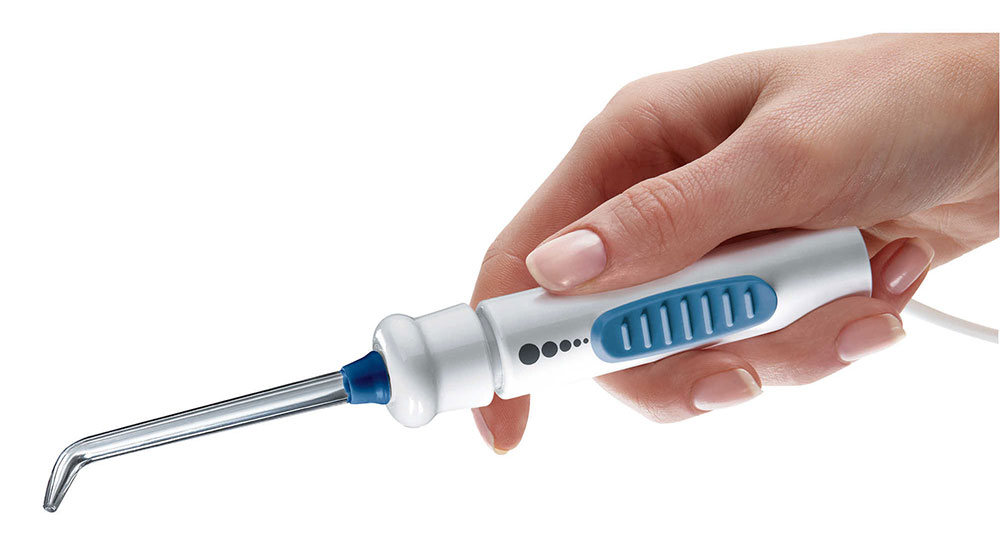
Taking care of your oral hygiene between dentist visits is easier if you have the right tools to use. Most of the time this means a good toothbrush, toothpaste, mouth rinse and dental floss. In the event that you want something a little more specialized to supplement your home dental care, however, these three devices offer enhanced cleaning opportunities for users.
The WaterPik has been around for decades and reached popularity in the 1970s, but it took until 2017 to receive the American Dental Association (ADA) Seal of Acceptance. Developed in 1962, it was the first oral irrigator available to consumers for home dental care. The device used a stream of water aimed at the teeth and gums to loosen and wash away food debris and bacteria from between the teeth and below the gum line. It provides a gentle, thorough method of cleansing around individual teeth that goes a long way towards keeping germs at bay.
In addition, a 2009 study published in the Journal of Evidence-Based Dentistry reported that oral irrigation benefited gingival or gum health by removing the bacterial biofilm that forms on the surface of the teeth. This biofilm enables the micro-organisms living in it to stay in contact with the gum tissue, defeating the object of various other types of dental hygiene.
Various other types of oral irrigators are available besides the WaterPik, and you’ll often hear people refer to them all as “water picks.” These devices are also very useful during your home dental care for cleaning around braces, wires and other dental appliances.
An interdental brush is a specially-designed toothbrush intended for use in the smallest gaps between your teeth, around dental braces and appliances such as retainers and expanders. The handle resembles a standard toothbrush, so most people find it easy enough to use. These brushes are also called interproximal or proxa brushes, and the cleaning surface looks somewhat similar to a pipe cleaner. It has short bristles that are attached to a small, central wire, which can fit into very tight spaces.
Some interdental brushes have coated wire while others are uncoated, and they come in a range of thicknesses to match the size of different mouths. You can also use them to apply antibacterial products or numbing agents to areas of the mouth, if this is part of your home dental care program.
There are literally hundreds of ways to whiten your teeth at home, but most of them are not recommended by dentists. One accepted method is to ask your dentist to take impressions and create custom-fitted whitening trays for you, which can be used with whitening gel at home in comfort.
These common home cleaning devices are supplemented by various others, including products currently in development for seniors. Two of the latest developments are a denture-locator device that works with mobile phones to help seniors locate lost dentures, and an insertable, automated mouth-brush for patients who struggle to hold a regular toothbrush.
For more information on home dental care or to schedule an appointment with Dr. Handler, please contact 416-267-4661.
Do you ever feel nervous about dentist appointments? Rest assured: we cater to nervous and anxious patients in a gentle and considerate manner. Call us now to schedule a free consultation!